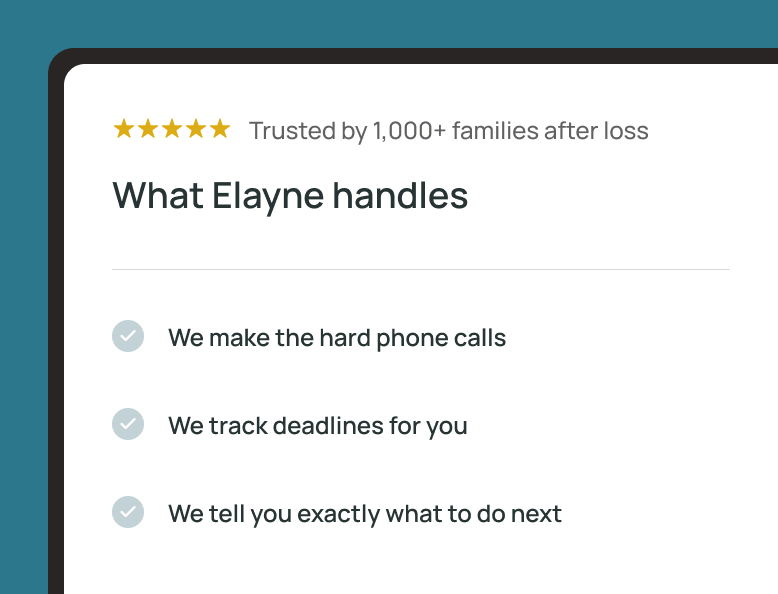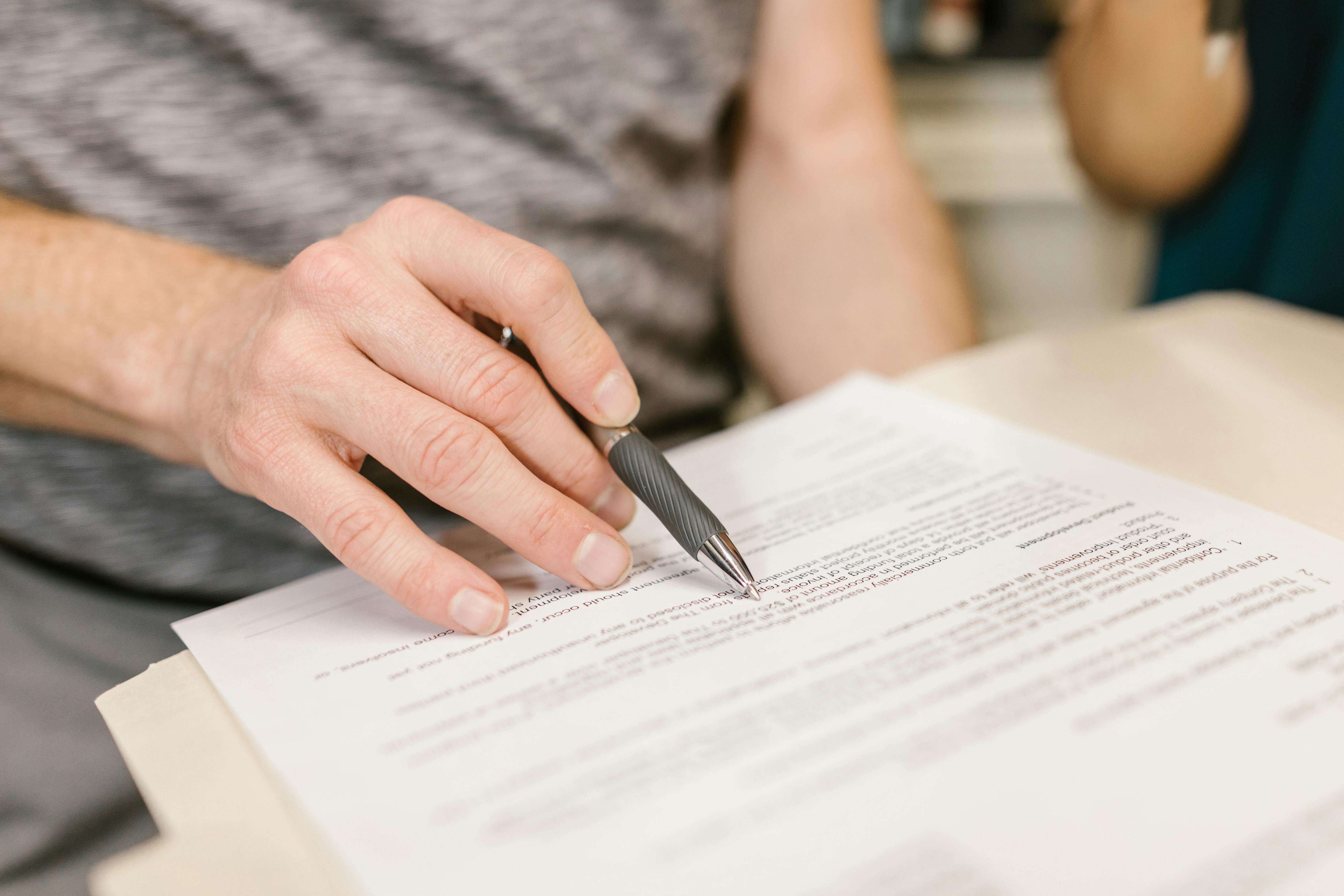Key Takeaways
- The Social Security Administration (SSA) handles Medicare notification of death on Medicare’s behalf.
- There is no separate Medicare death notification form—you simply report the death to the SSA.
- Confirm that Medicare Advantage or Part D coverage has been closed to avoid billing or fraud issues.
{{blog-cta-admin}}
When a loved one passes away, one of the many administrative tasks that must be handled involves notifying government agencies—especially Medicare. Reporting a death to Medicare is a vital step that helps stop benefits, prevent fraud, and close accounts properly.
If you’ve ever wondered, “How do I notify Medicare of a death?” or “Does Social Security notify Medicare of death automatically?”, you’re not alone. This process can feel confusing, but in reality, it’s fairly straightforward—especially once you know which agency to contact and what to expect afterward. If you have authority to act, below are some key points to consider.
Why Medicare Needs to Be Notified of a Death
There are several important reasons to report a death to Medicare as soon as possible:
- To Stop Future Benefit Payments and Coverage: Medicare benefits end on the date of death. If payments or claims are processed after that date, they may need to be returned by the estate.
- To Prevent Identity Theft or Fraudulent Medical Claims: Keeping Medicare records accurate helps ensure that no one can use the deceased person’s identity or health benefits illegally.
- To Update Records for Estate or Survivor Benefit Processing: Accurate information helps ensure that the deceased’s estate, survivors, or dependents receive any benefits or refunds they are entitled to without delay.
Prompt reporting is essential to keeping both financial and medical records in order, protecting the estate, and simplifying the closure of government accounts.
How Do You Notify Medicare of a Death?
Many people assume they must contact Medicare directly, but that’s not actually the case. The Social Security Administration (SSA) manages death reporting for Medicare.
To notify Medicare of a death:
- Call the Social Security Administration (SSA) at 1-800-772-1213 (TTY 1-800-325-0778).
- Provide the deceased person’s full name, Social Security number, and date of birth.
- The SSA will process the report and automatically update Medicare records.
It’s important to note that there is no separate Medicare death notification form. The SSA handles this on Medicare’s behalf, so you do not need to fill out additional paperwork.
If you prefer, you can also visit your local Social Security office to report the death in person. Many funeral homes handle this step as part of their services, but it’s important to confirm it was done.
Does Social Security Notify Medicare of a Death?
Yes. Once a death is reported to the Social Security Administration, they will automatically notify Medicare.
This process is designed to reduce administrative burden for families during an already difficult time. However, there are a few situations where you should take an extra step:
- If the Deceased Was Enrolled in a Medicare Advantage Plan (Part C): Contact the plan provider directly to confirm the account has been closed.
- If They Had a Medicare Part D Prescription Drug Plan: Notify the plan provider as well to ensure that no further premiums or mail-order prescriptions are processed.
Even though the SSA shares the death information with Medicare, following up with these private plan providers helps ensure that all accounts tied to the deceased’s coverage are properly closed.
Who Notifies Medicare When Someone Dies?
In most cases, one of the following parties handles the notification:
- The funeral home, if provided with the deceased’s Social Security number. Most funeral homes submit the death report to the SSA electronically.
- A surviving spouse, child, or executor of the estate, who can call the SSA directly.
While others may handle it, it’s crucial for the family or executor to confirm that the notification was completed successfully. Mistakes or delays in reporting can lead to complications such as ongoing billing, or misuse of the deceased’s Medicare information.
What Happens After You Notify Medicare?
Once the SSA has reported the death to Medicare, several things occur automatically:
- Medicare coverage ends on the date of death.
- Future benefits stop, including any scheduled automatic payments or claims.
- If any benefits were paid after death, Medicare or the Social Security Administration may contact the estate to request repayment.
- Medicare Advantage or Part D plans will typically send a confirmation notice and may request documentation to close out any remaining records.
Conclusion
Notifying Medicare after a loved one’s death is an essential part of finalizing their affairs. By contacting the Social Security Administration, you help ensure that Medicare benefits are stopped, records are updated, and potential fraud is prevented.
While Social Security usually handles notifying Medicare automatically, it’s important to confirm that all coverage—including Medicare Advantage or Part D—has been properly closed.
If you’d like assistance with managing post-death notifications, Elayne’s Automated Estate Settlements platform can help. It’s designed to simplify difficult tasks, and support families through each step of the process.
{{blog-cta-admin}}
FAQs
Q: How do I notify Medicare of a death?
Call the Social Security Administration at 1-800-772-1213. SSA will handle notifying Medicare as part of its standard process.
Q: Does Social Security notify Medicare of death automatically?
Yes. Once you report the death to Social Security, Medicare records are updated automatically. However, if the deceased had a Medicare Advantage or Part D plan, it’s important to confirm with those plan providers directly.
Q: Is there a Medicare death notification form?
No. There is no special Medicare death notification form. The SSA manages the entire process by phone or in person.
Q: Who is responsible for notifying Medicare?
The funeral home, a surviving family member, or the estate’s executor can report the death to the SSA. Even if the funeral home handles it, always double-check that the report was completed.
*Disclaimer: This article is for informational purposes only and does not provide legal, medical, financial, or tax advice. Please consult with a licensed professional to address your specific situation.

.png)










































